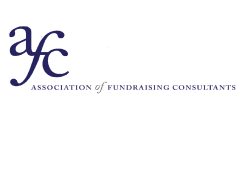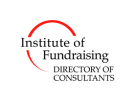Getting started with fundraising - advice for smaller charities
When thinking about fundraising there are many challenges that small charities have to face and continually overcome. The focus is usually on supporting a worthy cause and/or helping others, but it is crucial that dedicated time and resources are allocated to generating income; in practice, survival depends upon financial sustainability.
Identify your Fundraising Objectives
One of the first actions is to clearly identify your fundraising goals:
- the details of the project / your charity’s aims
- the need for fundraising
- the benefits accruing when the fundraising is completed
- the proposed sources of funds
- the target figure
- how the funds raised will be managed
The charity should have a working business plan where targets and budgets are clearly defined for the short-, medium- and long-term. If this needs to be re-done or updated, now is the time! Using the business plan, it becomes easier to write the fundraising plan which must be aligned with it, and must lead towards the fulfilment of overall business plan targets. This planning stage is critical as fundraising doesn’t usually happen overnight.
Tailor the Fundraising Effort to Match Responsibilities
The fundraising plan itself needs to be achievable and within the scope of whoever is implementing it. It is absolutely essential that the duties are within your team’s capabilities - too large a project can be daunting and can have a negative effect. There also needs to be measures put in place periodically to reflect and review what is working and what is not. Making adjustments along the way is good practice and ensures you remain on track.
Allocate Resources
Working out who is to take responsibility for putting together a fundraising campaign, allocating appropriate time whilst ensuring other tasks and duties are still completed, is often a juggling act. However, such decisions are vital for the financial sustainability of the charity and at the heart of its success. At this early stage, the best way forward isn't always clear or apparent.
The first step is to identify a lead person or group who understand fundraising and its relevance to the requirements of your charity.
Maximise your Resources
Small charities need to make best use of resources, involving trustees as well as staff and volunteers. Are there any specialists in marketing, accountancy, law, strategic management and, of course, fundraising? Using the strengths of any team makes perfect sense – and for the individual tasked with co-ordinating the fundraising effort, utilising the expertise of others who know and understand the charity can take a weight off their shoulders and can help share the load. As the saying goes, if you don't ask, you don't get!
Investigate Local Partnerships
Another step in trying to secure funds for a small charity could be to look to build local partnerships - are there any companies and organisations within the community that will consider making a donation or fostering a more permanent partnership - regular contributions - as part of their social responsibility / community charter?
Apply for Grants
Are there grants available in your sector from local or national sources that you could apply for? Applications for grants and funding need to be targeted well – perhaps a small number of large amounts rather than large numbers of smaller donations would work better? Both are, of course, valuable and greatly appreciated – don't put all your eggs into one basket. Finding out where to look for grants isn't always easy or obvious and applications themselves can be very confusing. This is a key area where an experienced fundraising consultant can certainly assist.
Check Your Legal Obligations
As can be seen, there are many facets to consider regarding successful fundraising as a small charity. One of the factors to take into account are changes to the Law which need to be taken into account; from the new Data Protection regulations (GDPR) being implemented in May 2018 to the introduction of the Fundraising Preference Service which allows members of the public to block communications from charities. These issues affect all charities, whether large or small. More information regarding relevant fundraising law and practice can be found on the websites of the Charity Commission at https://www.gov.uk/topic/running-charity/fundraising, and the Fundraising Regulator at https://www.fundraisingregulator.org.uk/.
Use Technology as an Enabler
Technological advancements have made donating quicker and easier for many - this does offer great opportunities for charities both large and small with people being able to use their phones/apps/tablets etc. Again, this can be daunting to set up and take advantage of in the first instance.
The development and acceptance of this 'digital age' and the integration of everyday technology in people's lives, especially their frequent and growing use of social media, has indeed dramatically changed the environments for many charities. Facebook, Twitter and the like make it possible to reach more people than ever before – the potential audience is huge, in fact it has been suggested that more charities use social media than have a dedicated website, but marketing needs to be directed at those most likely to support the cause and the ease and speed of donating is crucial.
Stand Out from the Crowd
With such a crowded marketplace, fundraising campaigns really need to stand out from that crowd and showcase their charity in the best way possible. They need to stir the emotions in potential donors, be honest and realistic, yet portray why donors should choose to support this charity over others.
Should You Obtain Help?
There is certainly a lot that small charities can do themselves with regards to fundraising but using the expertise of a fundraising consultant can make all the difference in such a busy marketplace where thousands of deserving charities are vying to raise money for their good cause. With a wealth of knowledge and experience in this challenging field, a fundraising consultant can tailor a package to suit specific needs and budgets - perhaps offering guidance, perhaps acting in an advisory role only, maybe being more fully involved, working with the charity’s existing skill set but filling any potential skills and resource gaps.
Here at Stefan Lipa Consultancy Ltd, we understand the challenges faced and can offer help, advice and guidance on what needs to be accomplished in order to maximise success with fundraising. However, don't just take our word for it, please take a few minutes to read about how we have helped charities achieve or exceed their fundraising goals here.
It is always worth a discussion to understand how we may help you. To arrange a free, no obligation meeting please contact us.
22.11.2017
For more information, call us on 01264 860003 or send an email.



